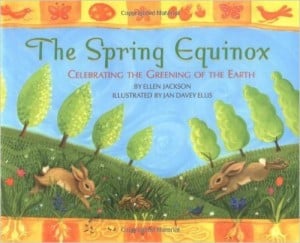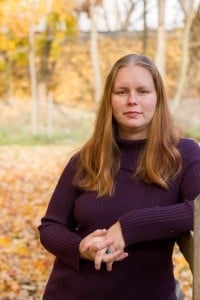By Christina
I live in a big house with my husband and our two kids, my husband’s girlfriend, her husband, their cats and dog, and a friend of ours. That’s family–or at least a big part of it. Our housemates are the people who steal our baby when they go for a walk, and if the fish sauce is missing from the fridge, then they probably have that, too. Every week we split our farm share, and I don’t think we could handle the whole thing on our own. My husband and his girlfriend carpool home for lunch. Living together is practical. It’s about sharing resources.
But being housemates is also about ambushing each other with cake when we hadn’t planned to celebrate our birthdays, and about bumping into mutual friends on their way to visit our housemates. We have a gaming space in our workshop, and that means my husband and housemate can take care of the baby while they play D&D, so there’s less need to choose between family and friends. None of us need to worry about rounding up people to move furniture, and when my four-year old was crying because I couldn’t put her dinosaur land together, our housemates came over, one after another, to take a stab at it. I appreciate this kind of community, not just as a safety net, but because of the space it opens up for serendipity. Maybe our housemates will come home from LA with leftover doughnuts at the same time that we’re taking meat out of the smoker, and we’ll have a ridiculous dinner together with sugar snap peas for dessert. Or maybe someone will want to use the woodworking tools my boyfriend left in our workshop.
The problem is that sometimes instead of serendipity, we get chaos. We spent our first couple years together learning how not to be the Titanic. It used to be that when one person hit an iceberg, their grouchiness and stress would spill over onto the next person and the next person until it felt like we were all sinking. Both of these problems can be ameliorated by standing strongly inside yourself, owning your own feelings and choices–but if you treat that approach as a panacea, you can end up over-solidifying your identity and disowning too much, including the things that connect you to each other.Somehow personal differences that are partly circumstantial threaten to solidify into identities, especially when it comes to differences with my husband’s girlfriend: she’s the neat one, while I feel more comfortable when it’s messy; she’s socially competent, and I tend to say the wrong thing; she’s conventional where I’m quirky. It’s ridiculous when you lay it out like that: how conventional can she be, if she’s part of our big polyamorous family? How opposed to cleanliness can I be, when I spend hours on chores every week? But since moving in together, we’ve started take on the sort of roles normally left to siblings and identifying who we are in comparison to each other. Being family means that, like it or not, we’re implicated in each others’ identities. The important thing is that we stay connected to each other in the midst of our differences, so that none of us is reduced to our roles.
I’m the only pagan in our house, but we do all have one quasi-pagan ritual together: We sit around the fire pit at New Years to discuss our dreams for the coming year, not just because we’re the ones who are in the best position to support each other’s hopes, but because we’re the ones who most need softened to the inconvenience of those dreams. We’re hoping that over time, this family will be a container that helps all of us grow, to become more compassionate, more grounded, and more ourselves.
It’s not a container meant to last forever, though, and part of its work is to let my husband’s girlfriend and her husband save enough money that they can move when our number of children outgrows this house. Meanwhile, the architecture of our house, with its three distinct living spaces, keeps our family open-ended. The tenant of the third space is usually a friend who’s less closely connected than the rest of us in the main house, and who changes more frequently. But that third space helps us dream inclusively, of all the beloved people who might be part of our household someday.
Maybe seeing the differences within our family will help my daughters learn about pluralism and problem solving. Maybe seeing our multiple relationships will help them resist constrictive ideas about love and femininity. Maybe they’ll learn a sense of family that’s open, inclusive, and shades generously into community. But in the mean time, my baby’s trying to pet our housemates’ kitty, and that’s good enough.
Christina is a pagan who identifies loosely with Reclaiming. Her spiritual work focuses on storytelling and parenting her four year old and one year old, but occasionally she finds enough time away from them to tweet for Pagan Families.
Editor’s note: Here are the other answers to the April Flash Point question “What makes a family?” If you’ve written an answer please send us a link!

















